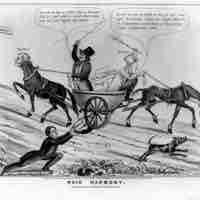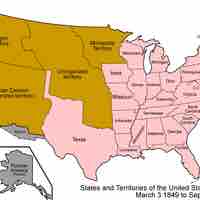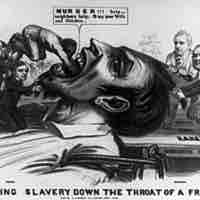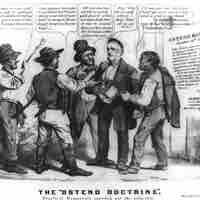Section 1
Breakdown of Sectional Balance
Book
Version 23
By Boundless
By Boundless
Boundless U.S. History
U.S. History
by Boundless
5 concepts
The Fugitive Slave Act
The Fugitive Slave Act, passed in 1850, caused controversy and contributed to Northern fears of a 'slave power conspiracy'.

Wilmot Proviso
The Wilmot Proviso would have banned slavery in any territory acquired from the Mexican War.

The Compromise of 1850
The Compromise of 1850 left the question of slave versus free states to popular sovereignty.

The Kansas-Nebraska Act
The Kansas-Nebraska Act of 1854 mandated that popular sovereignty would determine the slave or free status in the region.

The Ostend Manifesto and Cuba
The 1854 Ostend Manifesto justified the right of the United States to annex Cuba and implicitly justified war if Spain refused to sell the island.